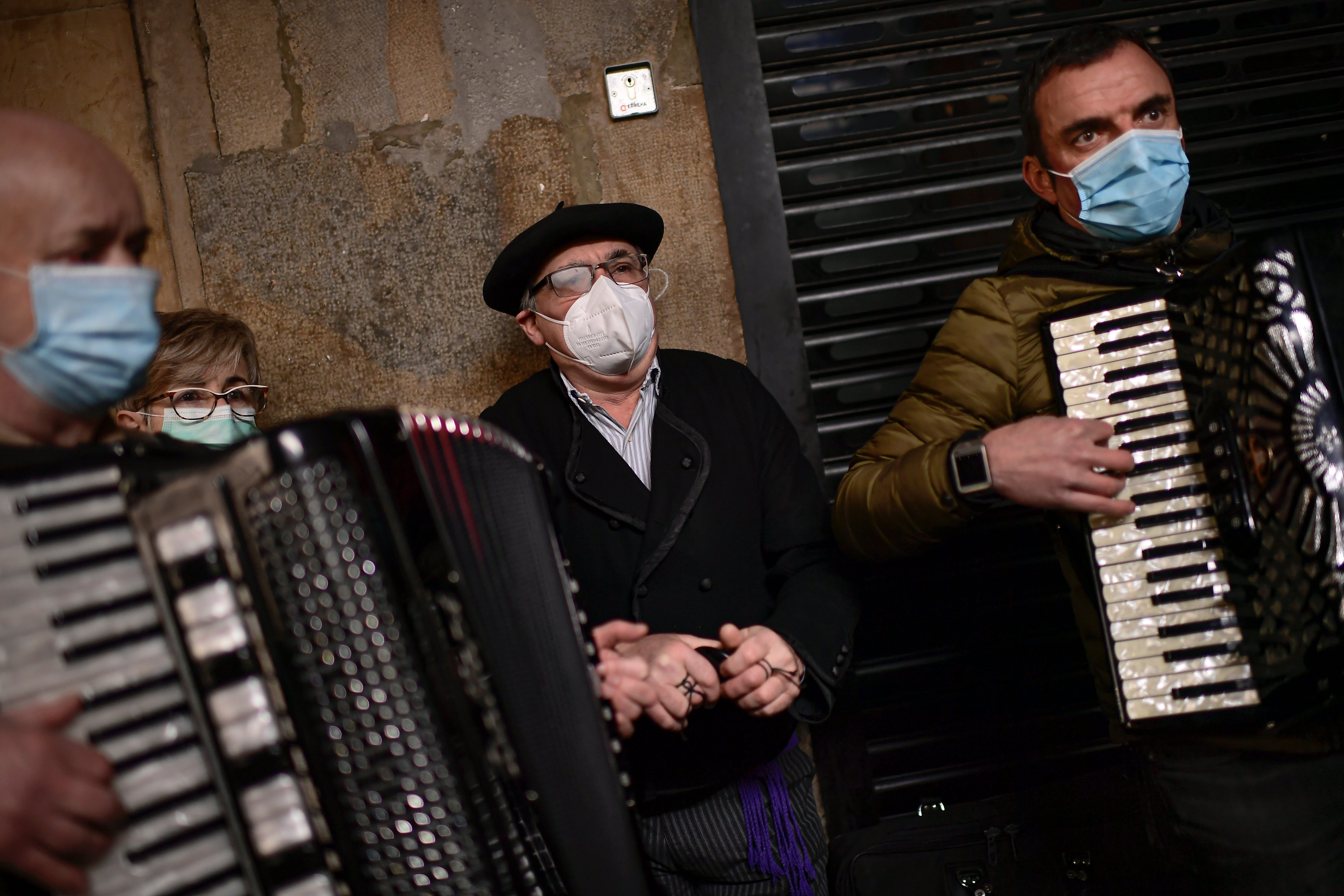Live updates: Blinken says vaccine disparity must be tackled
U_S_ Secretary of State Antony Blinken says the new omicron variant of the coronavirus underscores the point that “none of us will be fully safe until everyone is.”

Your support helps us to tell the story
From reproductive rights to climate change to Big Tech, The Independent is on the ground when the story is developing. Whether it's investigating the financials of Elon Musk's pro-Trump PAC or producing our latest documentary, 'The A Word', which shines a light on the American women fighting for reproductive rights, we know how important it is to parse out the facts from the messaging.
At such a critical moment in US history, we need reporters on the ground. Your donation allows us to keep sending journalists to speak to both sides of the story.
The Independent is trusted by Americans across the entire political spectrum. And unlike many other quality news outlets, we choose not to lock Americans out of our reporting and analysis with paywalls. We believe quality journalism should be available to everyone, paid for by those who can afford it.
Your support makes all the difference.RIGA, Latvia — U.S. Secretary of State Antony Blinken said that the new omicron variant of the coronavirus, which was discovered in South Africa underscores the point that "none of us will be fully safe until everyone is.”
Speaking in Riga Latvia, during a two-day meeting of the NATO foreign ministers, Blinken also noted “a real disparity” between vaccinations in Africa and the United States and Europe.
“We have vaccination rates in the United States, in Europe of 50, 60, 70%, depending on exactly who you’re counting. And in Africa, it’s more like 14, 15% or less.”
He noted that sometimes the supply of vaccines may actually be sufficient to meet the needs, but the ability to get shots in arms is lacking.
He said the United States was working on a solution that “brings the private sector into the game to help solve these last-mile problems of getting shots and arms. We’re putting that into into motion now.”
___
MORE ON THE PANDEMIC:
— The EU’s medical agency says it will take two weeks to have an indication whether the current COVID-19 vaccines will be able to deal with the new variant
— See all of AP’s pandemic coverage at https://apnews.com/hub/coronavirus-pandemic
___
SINGAPORE — Singapore will tighten border restrictions as it seeks to guard against the new omicron coronavirus variant that has spread to at least 16 countries and sparked global concern.
Authorities announced Tuesday that Singapore will freeze the addition of new vaccinated travel lanes which already are in use to allow travelers from countries like the U.S. and Malaysia to enter Singapore without quarantine. Authorities said Tuesday they were suspending plans to include other countries in the program.
Singapore had already deferred the launch of vaccinated travel lanes with Qatar, Saudi Arabia and the United Arab Emirates on Sunday, given their proximity as transport hubs to countries like Botswana, South Africa, and other African countries which have been hit by the omicron variant.
___
MOSCOW -- Russian President Vladimir Putin said he tasked the government to work up a revised plan of COVID-19 response within a week, taking into account the new omicron variant of the coronavirus.
The Russian leader said Russia’s health care system should be prepared for the new challenges of the changing virus, adding that globally, the world can effectively fight the pandemic only with “coordinated actions of the international community.”
Russia still hasn’t reported any confirmed cases of omicron. It hasn’t halted flights with African nations but has restricted travel from several African countries.
___
BRUSSELS — The omicron variant was already in the Netherlands when South Africa alerted the World Health Organization about it last week, Dutch health authorities said Tuesday, adding to fear and confusion over the new version of the coronavirus.
The Netherlands’ RIVM health institute found omicron in samples dating from Nov. 19 and 23. The WHO said South Africa first reported the the variant to the U.N. healthy agency on Nov. 24.
It remains unclear where or when the variant first emerged — but that hasn’t stopped nations from rushing to impose travel restrictions, especially on visitors coming from southern Africa.
Much is still not known about the variant — though the WHO warned that the global risk from the variant is “very high” and early evidence suggests it could be more contagious.